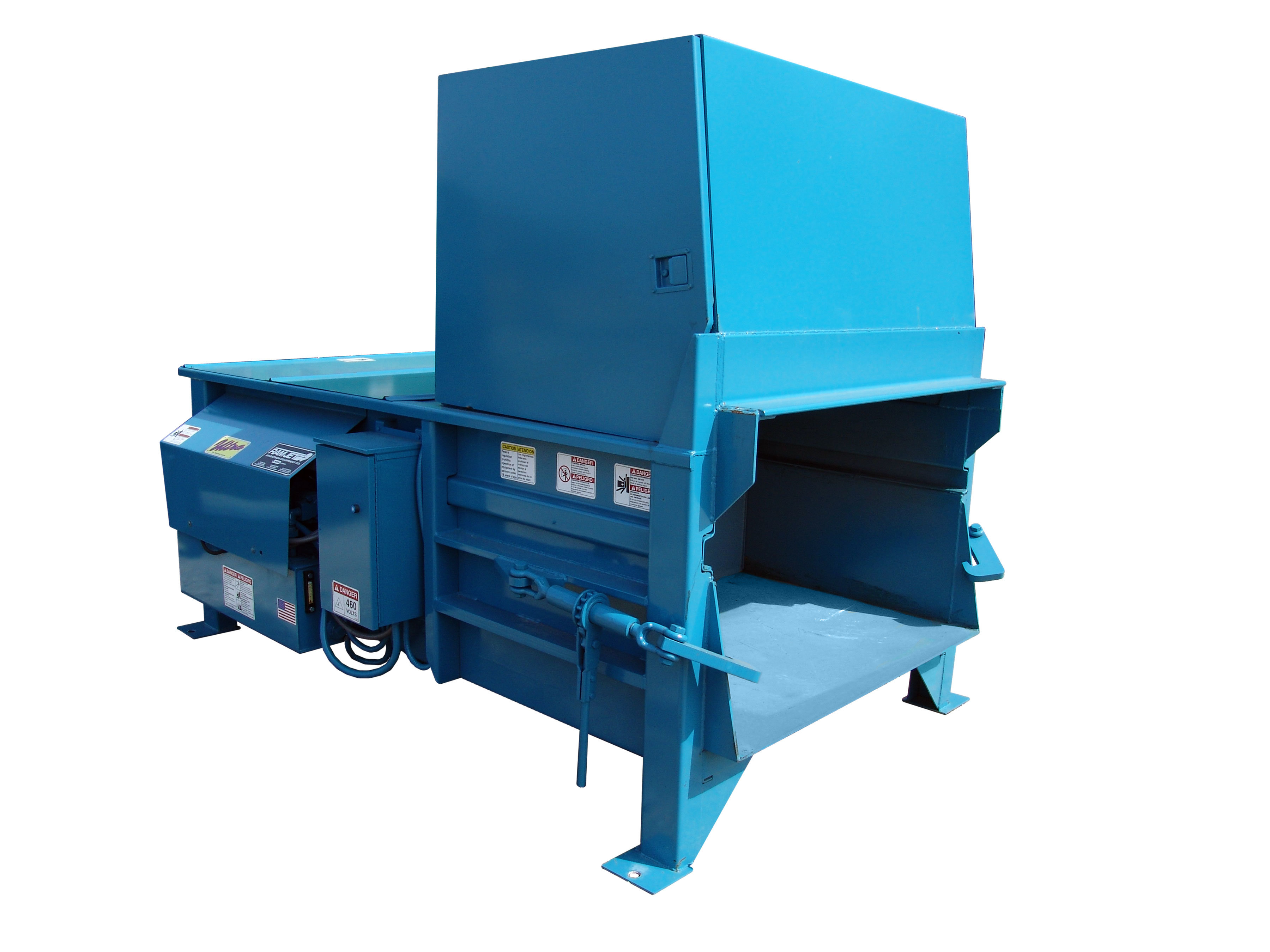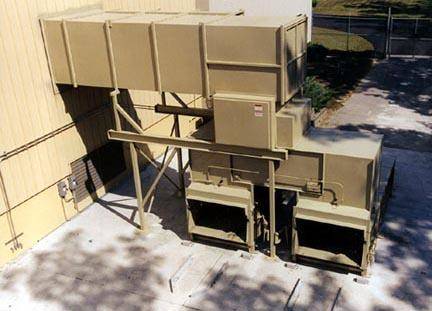The Duty of Waste Equipment in Encouraging Sustainable Garbage Disposal Practices
Waste Equipment offers a basic duty ahead of time lasting waste disposal methods. It incorporates a series of tools developed to improve the efficiency of waste handling, collection, and partition. By utilizing Equipment such as compactors, shredders, and recycling bins, neighborhoods can considerably decrease their dependence on garbage dumps. The effect of these tools prolongs beyond performance. Understanding their wider effects reveals understandings into exactly how they shape ecological responsibility and area interaction. What lies in advance in this evolving landscape?
Comprehending Waste Equipment and Its Relevance
Waste Equipment plays a necessary role in effective waste monitoring systems. It encompasses a variety of devices and equipment designed to manage, process, and get rid of waste products efficiently. Understanding waste Equipment is necessary for services, communities, and organizations intending to carry out lasting garbage disposal practices - Commercial garbage compaction equipment. Correctly working waste Equipment not only simplifies the collection and transport of waste however also reduces ecological influence by ensuring that waste is handled sensibly
The value of waste Equipment includes enhancing recycling initiatives, decreasing garbage dump usage, and promoting source recuperation. Equipment such as balers, shredders, and compactors promote the processing of waste, making it easier to divide recyclable materials from general refuse. Additionally, improvements in waste technology add to the advancement of even more ecologically friendly solutions, thereby reinforcing the commitment to sustainability. Overall, waste Equipment offers as a foundation for reliable waste management, cultivating a cleaner and much healthier setting for future generations.
Sorts Of Waste Equipment for Effective Waste Monitoring
Effective waste management relies upon different kinds of Equipment created to resolve certain disposal requirements. Amongst these, compactors play an essential role by reducing the quantity of waste, making transport more reliable. Shredders are essential for breaking down big things, promoting less complicated handling and disposal. Additionally, balers compress recyclable products into manageable bales, maximizing storage space and transportation.
Containers and containers are basic for accumulating waste at the resource, ensuring correct partition and decreasing contamination. For harmful products, specialized Equipment, such as drum crushers and watertight containers, is necessary to guarantee security and compliance with regulations.
Finally, transportation automobiles outfitted with hydraulic systems improve the effectiveness of waste collection and disposal procedures. Each kind of waste Equipment adds to a structured waste administration system, advertising sustainability and lowering environmental effect with efficient disposal methods.
The Duty of Reusing Bins in Lasting Practices
Recycling bins play an essential role in promoting sustainable methods by promoting efficient waste separation. By offering assigned containers for recyclable products, they urge people to take on green habits. This basic execution substantially contributes to minimizing land fill waste and boosting reusing rates.
Reliable Waste Splitting Up
Correct waste splitting up plays an essential role in promoting lasting techniques, and reusing containers offer as a substantial device in this process. By clearly distinguishing between recyclables, compostables, and basic waste, these containers promote reliable sorting, lessening contamination and taking full advantage of recycling effectiveness. Their strategic positioning in personal and public areas motivates individuals to join responsible garbage disposal. Moreover, using color-coded bins aids to simplify the separation process, making it intuitive for customers. This business technique not only boosts recycling prices however also elevates recognition regarding the importance of waste monitoring. Essentially, reusing bins are basic elements that sustain efficient waste splitting up, eventually adding to a much more lasting environment and minimizing the overall stress on landfills.
Motivating Eco-Friendly Actions
People may be inclined to ignore their impact on the atmosphere, the visibility of recycling bins substantially influences environment-friendly behavior. These bins work as aesthetic reminders, encouraging people to different recyclables from basic waste. Their tactical positioning in public rooms promotes availability, making it much easier for people to adopt sustainable methods. Researches indicate that when recycling bins are offered, reusing prices increase significantly, showing a straight relationship in between infrastructure and behavior. Additionally, vivid signs on these containers educates users regarding what materials can be recycled, minimizing contamination prices. By promoting a culture of recycling, these containers not just promote correct waste monitoring yet additionally motivate a cumulative responsibility toward environmental stewardship, ultimately contributing to a more sustainable future.
Composting Solutions: Turning Waste Into Resources
Composting systems act as a crucial tool in transforming organic waste right into beneficial sources, supplying countless ecological benefits. Different kinds of composting Equipment cater to various demands, making the procedure obtainable to both areas and individuals. Comprehending the composting process is essential for optimizing its performance and promoting sustainable waste monitoring methods.
Benefits of Composting Systems
Many areas are significantly acknowledging the various benefits of composting systems, which change organic waste right into useful resources. These systems effectively lower garbage dump waste, thus lowering greenhouse gas discharges and conserving all-natural resources. By converting food scraps, lawn waste, and other organic products into nutrient-rich garden compost, they enhance dirt health and wellness and fertility, promoting lasting agriculture methods. Furthermore, composting helps to preserve moisture in the dirt, lowering the requirement for chemical plant foods and watering. It fosters biodiversity by giving an environment for valuable bacteria and look at here insects. Furthermore, composting enlightens individuals concerning environmental stewardship, motivating a society of sustainability. In general, composting systems play an essential duty in creating a round economic situation, where waste is reduced, and sources are recycled.
Kinds of Composting Equipment
A variety of composting Equipment is offered to facilitate the efficient handling of natural waste right into valuable garden compost. These systems range from basic yard compost bins to sophisticated business composters. For home use, tumblers and static containers are preferred, permitting manageable aeration and mixing. Aerated static piles use blowers to improve air movement, significantly accelerating decay. Massive procedures might use in-vessel composters, which regulate temperature level and humidity for perfect composting conditions. Worm composters, or vermicomposting systems, harness the natural digestion procedures of worms to damage down natural issue. In addition, shredders and chippers help prepare products by reducing dimension, advertising faster failure. Each kind of Equipment offers details demands, making it possible for varied composting techniques that add to lasting waste administration.
Composting Refine Explained
The composting procedure changes natural waste right into nutrient-rich resources with a series of biological and chemical responses. Bacteria such as bacteria and fungi damage down organic materials, consisting of food scraps and backyard waste. This decay produces heat, promoting more microbial activity and accelerating the breakdown procedure. As the garden compost develops, the temperature lowers, enabling useful organisms to thrive. The presence of oxygen is crucial, advertising aerobic problems that improve microbial efficiency. Throughout this procedure, carbon-to-nitrogen ratios need to be preserved to optimize disintegration. The end outcome is humus, a dark, crunchy substance rich in nutrients, which can be used to enrich soil, support plant growth, and add to lasting agricultural techniques.
Innovative Technologies in Waste Collection and Disposal
As cities come to grips with raising waste volumes and environmental issues, ingenious modern technologies in waste collection and disposal emerge as necessary remedies. Smart waste bins furnished with sensing units track fill levels, enhancing collection paths and decreasing gas usage. These containers can likewise connect with waste management systems, reducing and promoting prompt pickups overflow problems. On top of that, self-governing cars, consisting of drones and robot systems, are being released to enhance operational effectiveness in waste collection.
Advancements in sorting modern technologies, such as synthetic intelligence and artificial intelligence, enable a lot more reliable reusing processes by quickly determining and dividing products. In addition, waste-to-energy technologies transform natural waste right into eco-friendly power, reducing garbage dump dependence and adding to power sustainability. These advancements not just streamline waste administration techniques yet also site advertise a round economy, thereby fostering a sustainable technique to garbage disposal. Eventually, the integration of these technologies plays a pivotal role in addressing city waste obstacles and boosting ecological stewardship.
Neighborhood Interaction Through Waste Equipment
While effective waste management relies heavily on innovative modern technologies, area involvement via waste Equipment plays a vital function in promoting sustainable methods (Commercial garbage compaction equipment). Waste Equipment, such as recycling containers and composting stations, serves not only as useful devices yet additionally as drivers for community recognition and involvement. By putting these resources in accessible areas, districts motivate individuals to take an energetic function in waste reduction and recycling initiatives
Educational projects coming with waste Equipment installments can further boost community participation, directing residents on appropriate disposal techniques and the advantages of sustainable methods. Additionally, regional occasions that utilize waste Equipment, such as clean-up drives and reusing challenges, influence cumulative action and develop a sense of obligation amongst community members.

The Future of Waste Management and Lasting Solutions
Innovations in technology and shifts in societal attitudes are forming the future of waste monitoring and sustainable remedies. Smart waste monitoring systems, making use of IoT gadgets, are allowing real-time monitoring of waste levels, optimizing collection routes, and lowering carbon impacts. These improvements not only enhance performance however likewise promote recycling and composting initiatives by giving data-driven understandings.
The increase of round economic climate practices motivates companies to reassess item design, concentrating on reusability and recyclability. This change promotes a society of sustainability, where consumers are increasingly requiring environmentally friendly items.
Neighborhood involvement in waste management is becoming progressively important, with academic programs encouraging individuals to take obligation for their waste. As federal governments worldwide carry out more stringent policies on garbage disposal, neighborhoods and companies are motivated to embrace lasting methods. With each other, these components pave the means for a future where waste is reduced, and sources are conserved, making certain a healthier earth.
Frequently Asked Concerns

How Can Businesses Profit Financially From Purchasing Waste Equipment?
Purchasing waste Equipment can lead to considerable financial advantages for services. By improving efficiency, reducing disposal prices, and improving recycling capacities, business can reduce operational expenditures and possibly generate earnings through recouped products.
What Rules Regulate using Waste Equipment in Different Regions?
Numerous regulations control waste Equipment usage, varying by area. These include ecological standards, security methods, and operational guidelines, focused on making certain compliance, promoting public health and wellness, and minimizing environmental effect connected with waste monitoring practices.
How Do I Select the Right Waste Equipment for My Demands?
Picking the appropriate waste Equipment requires reviewing specific waste types, quantity, and disposal approaches. Researching offered alternatives, seeking advice from professionals, and taking into consideration regulatory compliance will certainly assist in making an informed decision tailored to specific needs.
What Are the Environmental Effects of Ineffective Waste Equipment?
Inefficient waste Equipment can result in raised emissions, higher power consumption, and higher land fill overflow. It typically causes improper waste partition, aggravating air pollution and adversely impacting ecological communities, which ultimately impedes lasting waste monitoring initiatives.
Just How Can Waste Equipment Be Kept for Optimal Efficiency?
Waste Equipment can be kept for peak performance via regular evaluations, timely fixings, correct cleansing, and adherence to manufacturer guidelines. This guarantees performance, expands Equipment life expectancy, and reduces environmental impact during waste management procedures.
Waste Equipment plays a vital role in effective waste administration systems. Comprehending waste Equipment is vital for services, communities, and companies aiming to implement sustainable waste disposal techniques. While efficient waste management depends greatly on sophisticated technologies, area interaction through waste Equipment plays a crucial function in promoting sustainable practices. Area participation in waste administration is ending up being navigate to this site increasingly necessary, with educational programs empowering people to take obligation for their waste. Selecting the appropriate waste Equipment demands reviewing details waste kinds, volume, and disposal approaches.